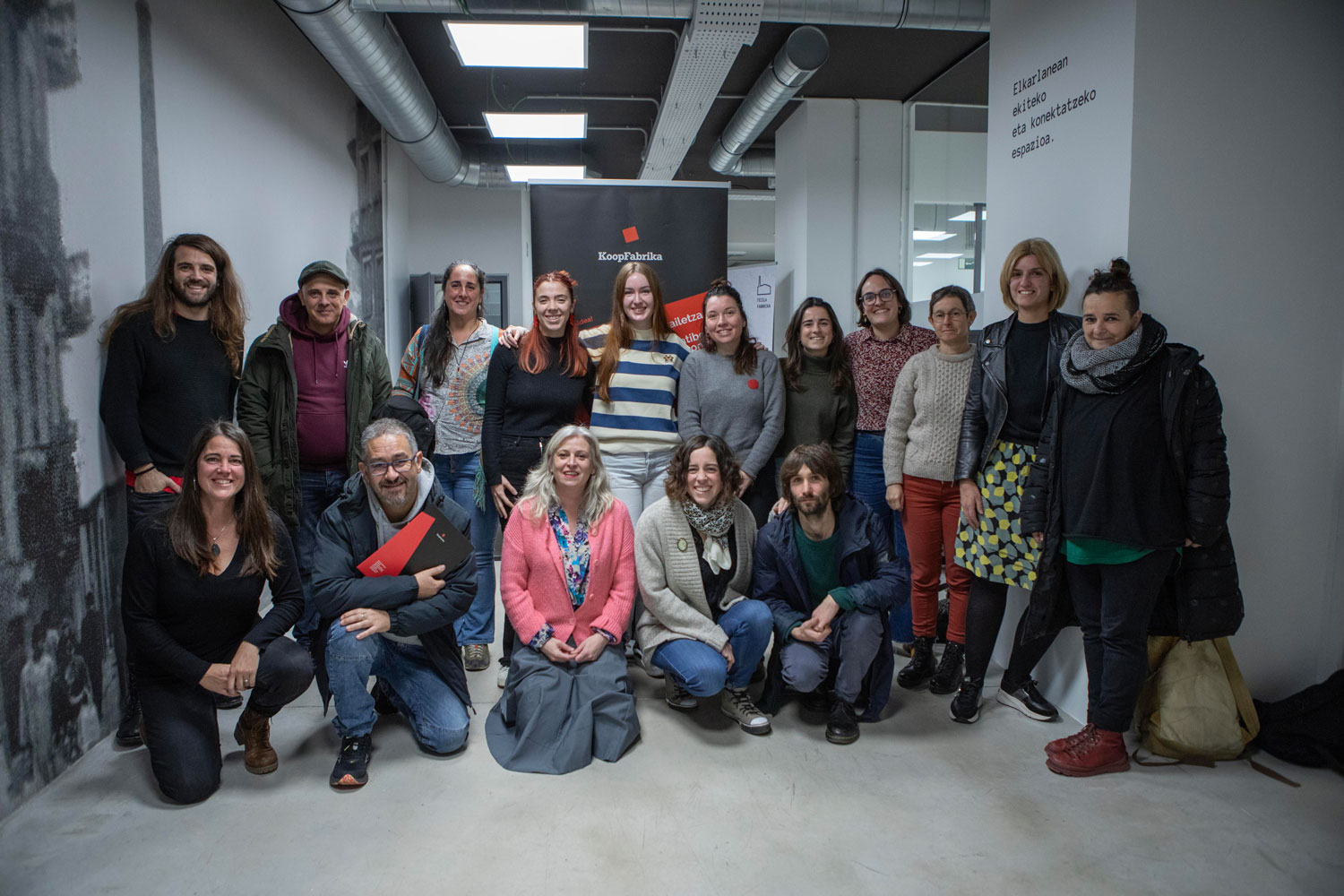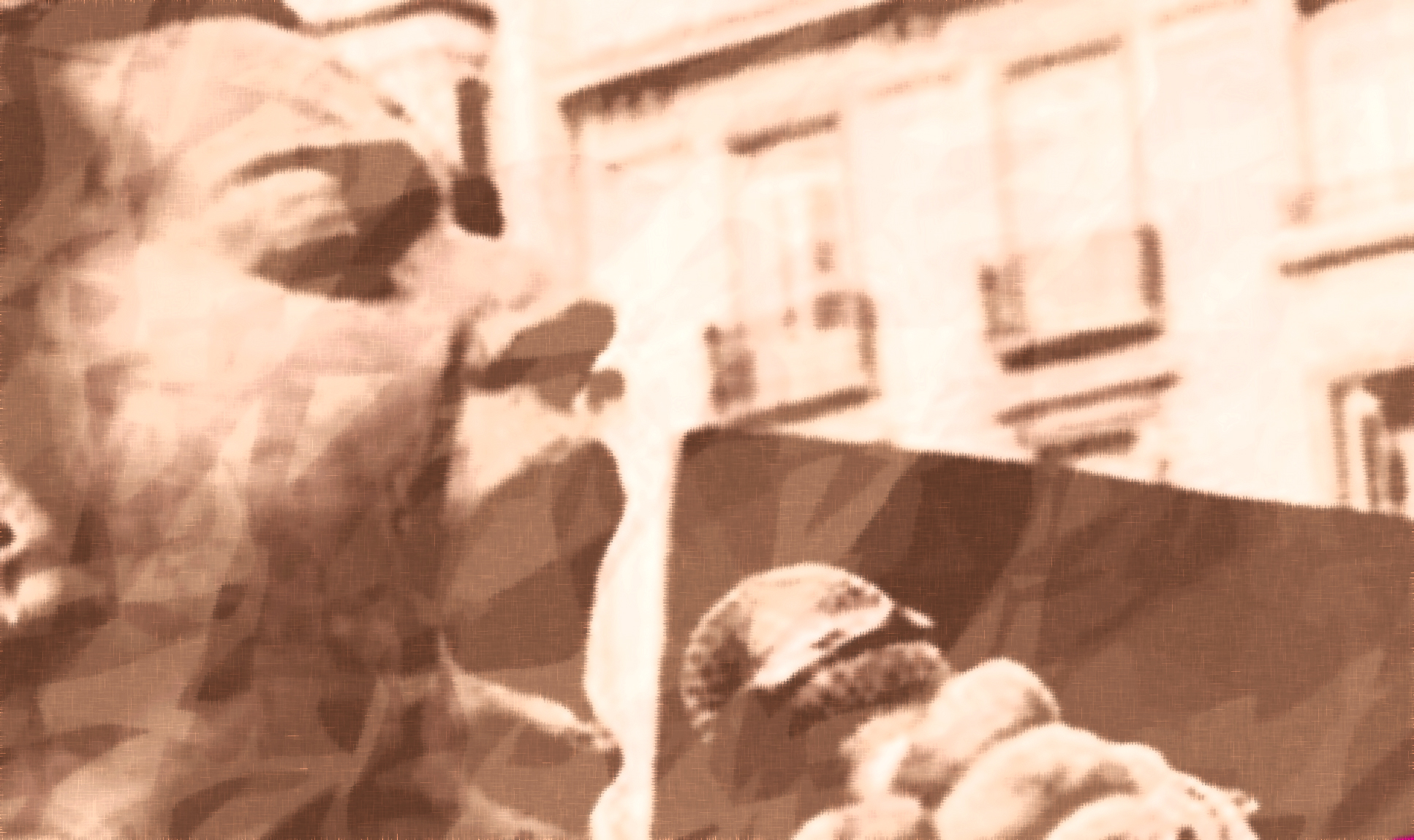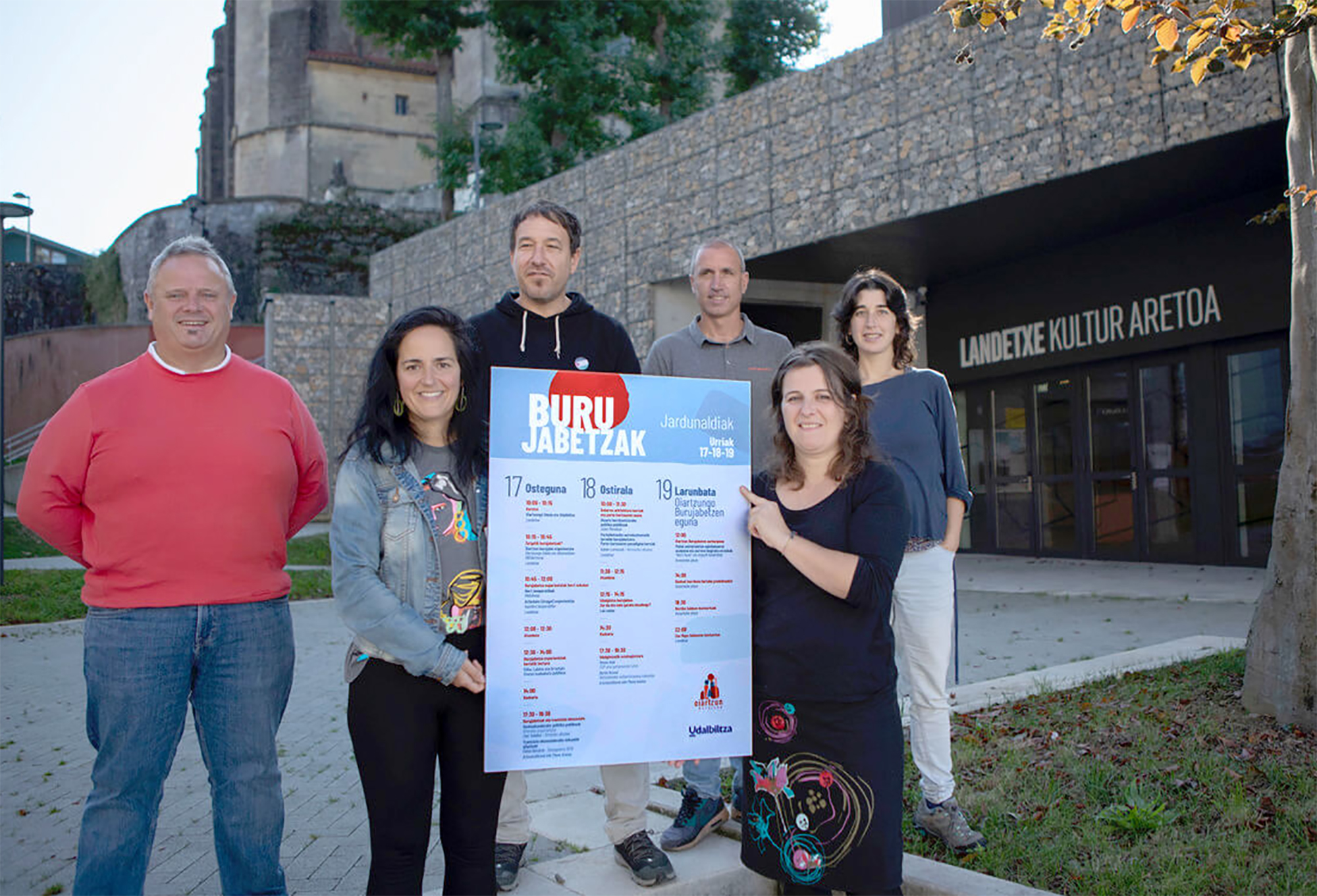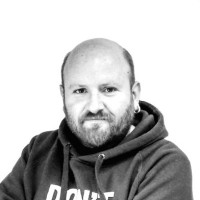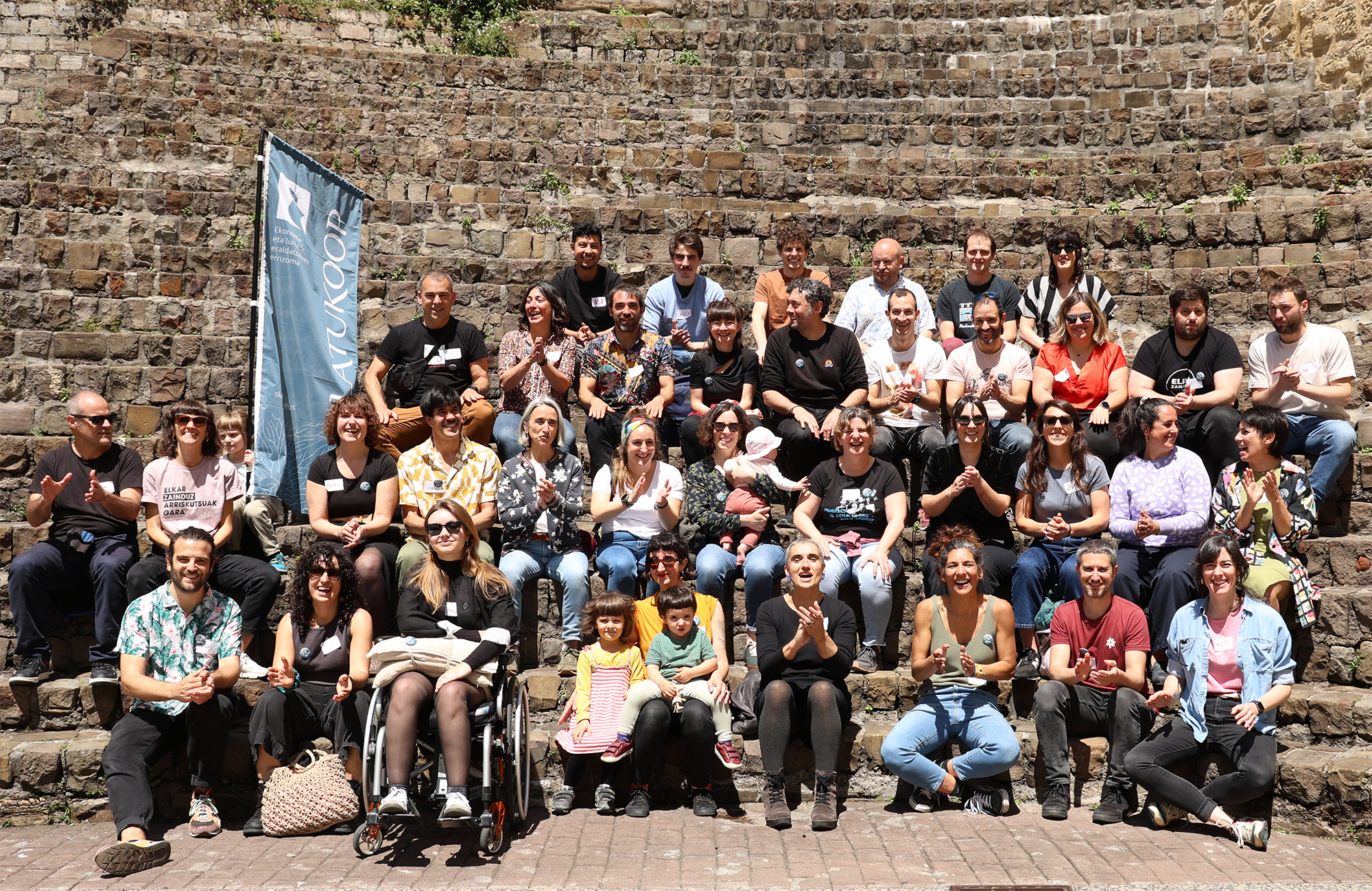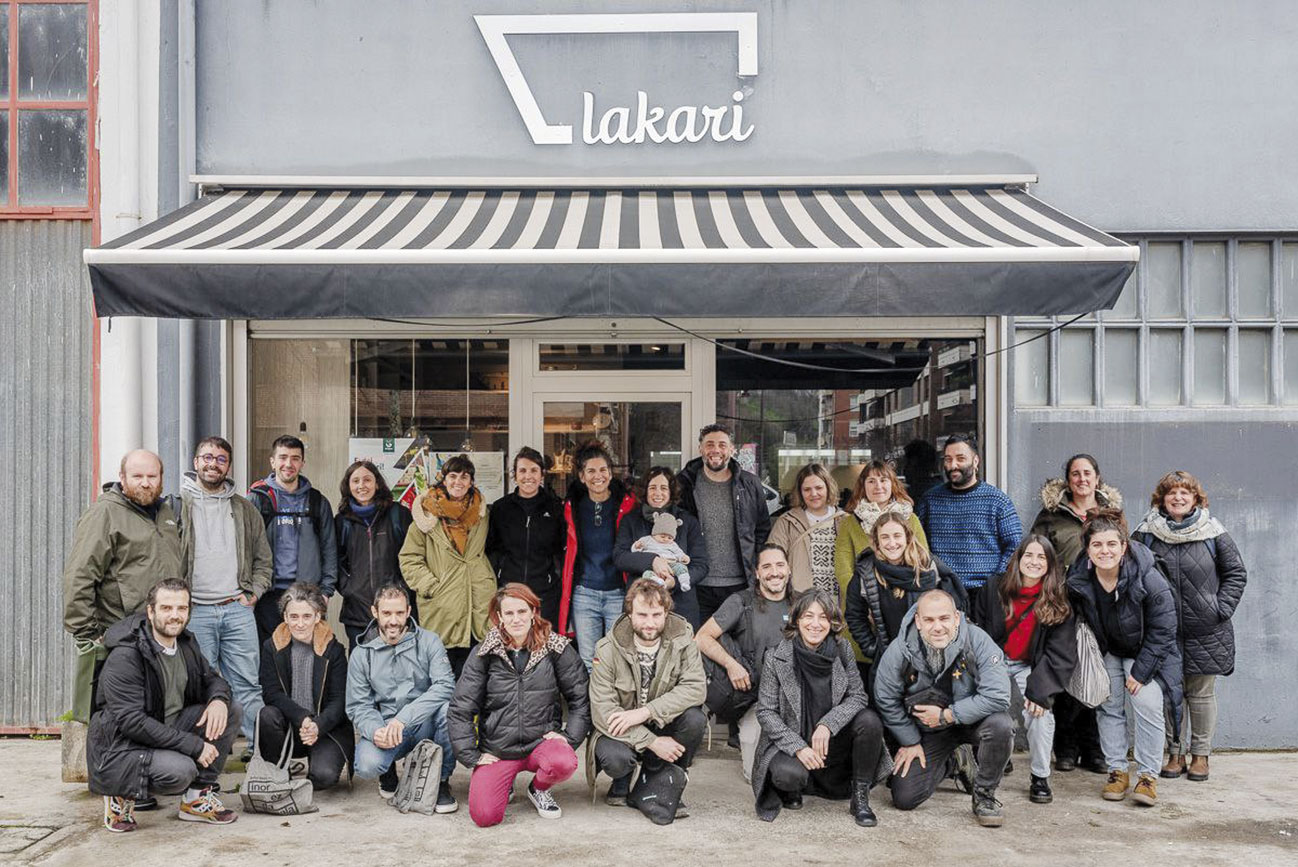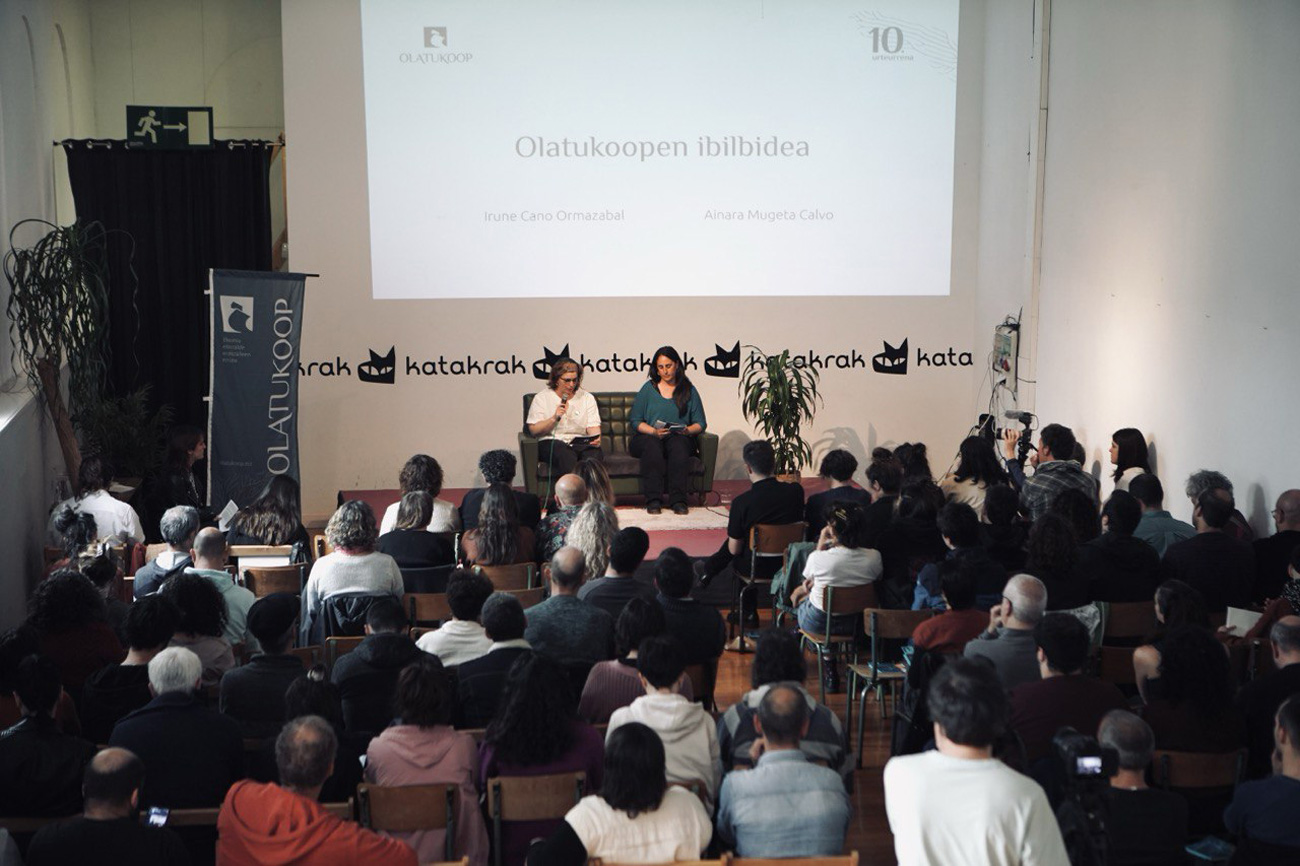"In Ipar Euskal Herria there is a need for an energy transition and the state will not do so"
- I-Ener has the form of a company before the law, but in fact his goal is to make it a popular movement that promotes the energy transition. On October 5 they presented to the people, Bizi! within the Alternatiba Zokoa initiative organised by the movement in Ziburu. We talked to two of the creators, Patxi Bergara and Mathieu Iriart, at the headquarters of the association in Angelu.
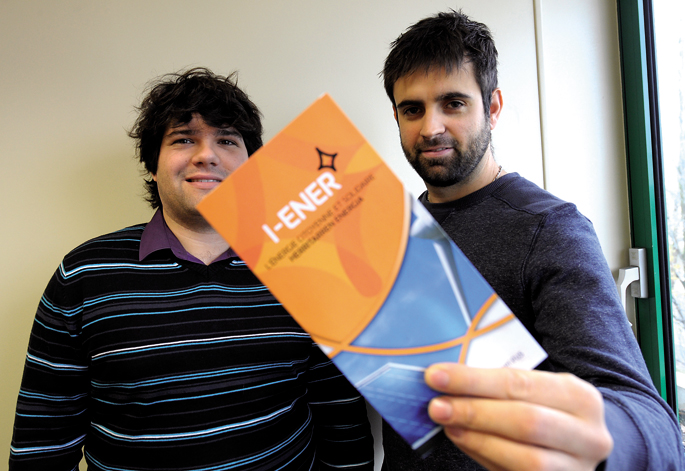
Where did the idea of creating I-Ener come from?
Patxi Bergara: We started each by its side, then we got in touch. For my part, the first wish was to create an initiative on sovereignty. Sovereignty in general. Then I met GoiEner [see Argia 2.420] and thought: Why not an initiative of this kind in Iparralde? There have been discussions between us and we have not done the same at GoiEner, but that was the idea. At the level of France, EDF has always had a monopoly in the electricity sector and today, even if it is liberalised, the people here do not know that it can be changed. That is also a dependence as a Basque of France.
Mathieu Iriart: It is only ten years ago that it has been liberalised, but in France everything is very centralised in general, also in energy, and it is not a matter for local companies such as Germany or Denmark. Many do not know that it is possible to choose other options. And there are; today there are about twenty suppliers.
Will you also be suppliers?
P. Group B: No, we will be creators, producers. There's a lot of these things, and almost all of them sell it to EDF. We too, at the beginning.
M. I. Our intention is to produce for the moment and create a distribution structure for a day. If GoiEner came to Ipar Euskal Herria, it would be a perfect circle, for us to produce to sell them, and to tell the citizens that they can hire with GoiEner. We would have everything in Euskal Herria.
Why producer and not supplier?
M. I. The energy transition is our primary goal, but it really is a global goal. The first action we have decided to take is therefore to produce. The first step will be to build collective facilities through photovoltaic panels. If we want a transition, we need energy autonomy, and that means that we citizens must recover the energy sector, but we cannot recover the energy that we do not produce. Before you recover it, you need the energy to be here; there's nothing to get back today.
P. Group B: At first we wanted to be like GoiEner, the distributors, but soon we realized it wasn't the way. Our spirit is to distribute clean electricity, and today in Ipar Euskal Herria there has been clean electricity, inside, but it's not a lot of it.
Where will the PV installations be installed?
P. Group B: We have not yet set specific places – in principle everyone will be inside, we know that – but we intend to start on the rooftops of the collectivities or farmers. We want big roofs. And we're talking to some elect.
M. I. The aim is to install the first panel in March. We shall not be demanding a euro for the electorate, but the roof, and we believe that they will not be able to reject it, but it will take time. We'll be ready, you're already putting money in, people will say you'll invest... We're not afraid of that. However, the campaign is difficult, as it would be easier to communicate with the identified roof. But we need some money for the roof. So, the first people are really militants, from our nearby environment, that's the first circle, and the second will be that of the historical militants of Ipar Euskal Herria, who always support Euskal Herria.
So are you spreading the message from the point of view of sovereignty rather than from the point of view of ecology?
M.I. : For both. Basque identity and ecology. The Basque currencies, EHLG... have already shown that in Ipar Euskal Herria there is the ability to unite these two worlds: Vascopphiles and Progressive or Ecologists. We will take advantage of the fact that they are increasingly working together in this territory.
You want to change the production model, but also the consumption model. I mean, consume less.
M. I. That is what we want on the one hand and, on the other hand, to move from the current model of nucleooil to renewables. Our intention is to produce here the energy that is consumed here, but not as much as it is now. If we consume today 100, let tomorrow be enough 50.
Have you mentioned the null oil binomial, but in the field of electricity generation there is oil?
M. I. No, oil is more used for transport, but as far as electricity is concerned it is nuclear, 75 to 80% of nuclear electricity. They say that in ten years the percentage will fall by half, but they will generate the same energy, as total consumption will increase.
It therefore comes from three quarters of nuclear power. And the rest?
M. I. 10-15% of the hydraulics and another 10% of the renewables: some solar panels, very little wind...
P. Group B: France says that “we will be the champions of nuclear.” Those who defend nuclear are quite quick, and there are always arguments that renewable energies cannot be controlled, that electricity cannot be guaranteed to reach the home and that they do not correspond to consumption habits, as the panels mainly produce in summer, but that electricity is needed more in winter. On the other hand, it is not a question of the left or the right, but the Communists are in favour of nuclear because it seems that it has created many jobs.
Has the Fukushima accident not brought about any change?
P. B: A little bit. Some people said that in France the old plants had to be shut down, but, in spite of that, they are going to open new ones. And the old ones don't close.
M. I: That is why we are also making our way here. In Ipar Euskal Herria, we are convinced that an energy transition is needed, and we are convinced that the state will not, or will not, do it well. We are going to do it; as Basques, that is the opportunity to create our own tools.
I'm talking about the I-Ener organization. How have you structured the company?
P. B: When we start making the facilities we will hire a specialized technician, but at the moment there is no staff, we are ten creators and we are all volunteers. At first we wanted it to be cooperative, in the end it won't be, but the spirit will be the same: one person, one vote. Whatever the capital provided. And the profit will be invested. Legally, it will be a simplified shareholder company SAS.
M. I: It has to be said that we are not experts and that we are learning as we do. We have taken as a reference some French initiatives that have started like us, without knowing anything.
P. B: We're in constant collection. The aim is to raise 60,000 euros to start installing the first panels. We have more than half.
Europako Ingurumen Agentziak ekainean argitaratutako Joerak eta proiekzioak Europan 2014 txostenak dioenez, Frantziako Estatua da 2020rako berriztagarrien arloan hazkundea sustatu beharko duen herrialdeetako bat. Zehazki, hazkundea 2005-2012 epealdikoa baino bizpahiru aldiz handiagoa izatea lortu behar duten herrialdeen multzoan dago Hexagonoa.
Ekainean halaber, elektrizitate ekoizpenean berriztagarrien pisu espezifikoa handitzeko –eta aldi berean energia nuklearrarena gutxitzeko– legea aurkeztu zuen Pariseko Gobernuak. Horren arabera, zentral nuklearrek ezingo dute produkzioa handitu –erreferentziatzat 2012ko kopurua hartzen da: 63,2 gigawatio–, eta elektrizitate osoaren %50 sortu behar lukete, oraingo %75en ordez.
Edozelan, Ségolène Royal Ekologia, Garapen Jasangarri eta Energia ministroak ez zuen azaldu nola gutxituko den energia nuklearraren portzentajea, “legeak ez baitu zehazten”.
Budgets and the closure of annual accounts are nothing more at this time, from the domestic economy to most of the socio-economic spaces that we share. Large companies have begun to extract calculators and implement major plans for 2025. Small and medium-sized institutions and... [+]
I write these lines the day after the elections to the European Parliament, the dark times, the triumph of the Reactionary International in the elections to the European Parliament. It was already in advance and it is the confirmation of the conservative phase we live in, but it... [+]












